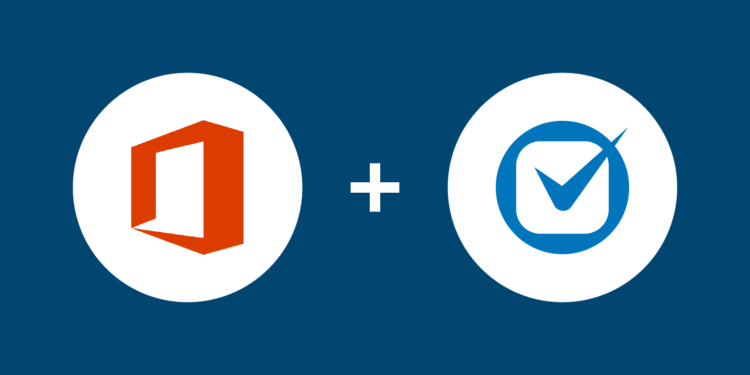What are the top tools for lawyers in 2024? In today’s rapidly-evolving legal technology landscape, there is an abundance of tech tools available to help set law firms up for success.
From the rise of generative artificial intelligence (AI) tools to cloud-based options that allow lawyers to operate more efficiently while working remotely, many firms are adopting more technology right now. However, it can be challenging to keep up with the latest options to find the tools that best fit your firm’s needs.
In this post, we’ll cover the top tools for lawyers based on data from industry reports and trends we’ve observed in the legal profession. By understanding what lawyer tools and equipment other legal professionals are using, you can decide what your firm can use to help it operate as effectively as possible.
What tools do lawyers use?
The most successful law firms today use an array of technology tools to work more efficiently and securely in an increasingly remote workplace. While each law firm’s optimal tech stack depends on factors like firm size and practice area, it’s a good bet to start with the basics, then add in tech tools to fill gaps, enhance productivity, and better serve your specific client base. For example, legal practice management software is an essential starting point for most modern law firms (more on that below).
Let’s look at the key types of tools for lawyers that thriving firms are using today.
AI tools
The recent rise of AI technology has already unlocked remarkable opportunities (and ethical considerations) for law firms. As such, more and more lawyers are interested in adopting AI tools to help their practices run more efficiently, with 19% of lawyers already using AI (in some form) in their practices and 32% of lawyers agreeing that AI can help reduce workloads, according to the 2023 Legal Trends Report.
While the range of AI tools for lawyers is rapidly growing, the most popular and highly anticipated AI options can boost law firm efficiency and improve productivity by automating many of the routine and repetitive—though necessary—tasks that would otherwise drain the time of lawyers and legal professionals.
For example, Clio Duo will bring the power of generative AI legal technology to Clio’s legal software tools, beginning with Clio Manage, in 2024. Clio Duo’s proprietary generative AI tech will serve as a coach, intuitive collaborator, and expert consultant for legal professionals, giving users:
- Personalized recommendations to enhance efficiency
- Reminders for pending and overdue tasks
- Bill generation assistance
- Document summarization and generation (for simple documents)
- Matter overviews
- Insights into law firm business performance
You may like these posts
Online file storage

Whether you’re working remotely or just want convenient, streamlined access to documents to work and collaborate from anywhere, online file storage tools for lawyers are key. They’re also incredibly common, with 79% of lawyers noting in the 2020 Legal Trends Report that they rely on cloud technology to store their firm’s data. Look for online file storage tools that are cloud-based, secure, and easy to use.
Dropbox—one of the world’s most popular document storage apps—is likely your first option for online file storage. In fact, according to the American Bar Association’s 2022 Legal Technology Survey Report, Dropbox was the most popular cloud service—with 66% of survey respondents indicating that they were Dropbox users.
You may like these posts
- Reflecting on 2023 at Clio
- Cloud Hosting Costs: What Law Firms Need to Know
- President Biden Signs AI Executive Order…but What Does It Mean?
- Digital Wallets for Lawyers: How to Accept Payment
Word processors
As a lawyer, a word processor is a necessity for drafting documents and letters. But, to take your document and letter drafting up a notch, we recommend using a cloud-based word processor that lets you work and access your legal documents remotely. For example, Clio Draft helps lawyers and their staff save time drafting legal documents by transforming Word docs into easy-to-fill online templates. You’ll be able to auto-fill client or matter information, reduce mistakes, speed up the process, and take advantage of the built-in e-signature capabilities.

Microsoft 365 (formerly known as Office 365) is a popular business tool for lawyers that offers word processing via Word, as well as numerous other productivity tools. Did you know that Microsoft 365 came in second place for being the most-used cloud-based service for lawyers (at 59%) in the American Bar Association’s 2022 Legal Technology Survey Report? This shows that cloud-based word processing tools are quickly becoming an indispensable part of a lawyer’s arsenal of tools. Microsoft Office 365 also connects with Clio Manage for even more streamlined productivity between tools.
Scanners

From legal documents to expense receipts, lawyers deal daily with papers that they need to easily access on demand, from anywhere—making the ability to digitize documents essential for lawyers in 2024. This is why a scanner (or scanner app functionality on your phone) is key.
For a physical scanner, this guide for choosing a scanner for your law firm can help you pick the right model.
If you go the app route, Evernote is a good option. The app integrates with your smartphone camera to empower you to capture (and organize) notes, files, and documents.
Another great scanning tool option for lawyers? Clio’s Mobile App lets you scan paper documents using your phone and save them as PDFs to Clio.
VOIP phone provider
No matter where you’re working, you need to be reachable at your business phone number. A Voice Over Internet Protocol (VOIP) phone service (options like Vonage, Corvum, and GoTo are good choices) lets you answer phone calls remotely by forwarding calls made to your business line to wherever you are.
Virtual receptionist service

Missing a call—whether because your law firm office is working remotely or you’re just away from the phone—means lost business.
A virtual receptionist service like Ruby (which offers live virtual reception and chat options) eliminates unanswered calls. This means better service for clients (and cuts the cost of having a full-time in-house staff member fielding calls).
Document management

Paperwork is an inextricable part of practicing law, but dealing with documents doesn’t have to be as tedious or time-consuming as it has been in the past. Document automation tools for lawyers streamline document creation (like letters and motions) by using the information you’ve already collected (like key dates or contact information) to populate forms for you. Document management tools then help you safely store and access those documents.
Legal practice management software like Clio Manage offers a simple, all-in-one solution for dealing with legal documents with document management and advanced legal document automation features. Clio Manage lets you compile documents with easy-to-use templates, then keeps documents secure in the cloud, so you can edit, store, and organize files as needed.
Time tracking and billing solutions

Accurate time tracking and billing are key to law firm profitability. However, spending a lot of time manually monitoring time and dealing with billing takes away from your productivity.
Using legal technology tools to improve billing processes can also improve law firm collections. According to the 2023 Legal Trends Report, for example, law firms using automated bill reminders collected, on average, 49% more revenue each month per lawyer than those that didn’t use automated bill reminders.
If you aren’t using lawyer tools to help with time and billing, start by looking at your practice management software, which may offer features to cover this. Clio Manage, for example, includes legal time and expense tracking and billing features.
If you aren’t using practice management software or simply want to consider your options, you should also check out our legal software list for our reviews of the top practice management software.
eDiscovery tools

Today, the majority of discovery is electronic, or eDiscovery. While the move towards more electronic discovery saves time, you can also use tech tools for lawyers to streamline your discovery process.
Logikcull’s cloud-based eDiscovery software, for example, automates thousands of previously manual steps (such as Bates Stamping and virus scanning) while also offering smart filtering options to save you time and effort. Plus, it integrates with Clio to automatically “mirror” your Clio matters into Logikcull.
Learn more about conducting eDiscovery effectively at your law firm.
Legal research tools

High-quality legal research is essential for your law firm’s success. Today’s tools put searchable law libraries, decisions, and other key details at your fingertips. This helps you conduct your legal research faster and more effectively.
Fastcase, for example, has one of the largest online law libraries in the world. Using Fastcase, which integrates with Clio, gives you remote access to documents like case law, statutes, regulations, constitutions, and more.
Effective legal research doesn’t have to be expensive, either. This post covers a few of the best quality free legal research tools you can find today.
E-signature tools

Electronic signatures are more convenient to coordinate than physical signatures, and less back-and-forth means less room for human error. They also make legal work faster and more efficient for lawyers and clients. And, they save paper, which is important as more firms go paperless.
While e-signatures don’t work in every instance, they are legally binding in many situations, as long as they meet the right criteria. However, some states require wet signatures for documents like wills.
Legal technology can help make e-signatures easier and more secure. Clio Complete, for instance, offers easy online document signing tools as part of Clio Grow’s client intake and legal client relationship management (CRM) software and Clio Manage’s document management functionality. Clio’s mobile e-signature functions also empower clients to sign legal documents remotely—which means a more user-friendly experience.
Video conferencing software

Communication and collaboration are central to a lawyer’s success, but in-person communication isn’t always possible or preferable. According to the 2021 Legal Trends Report, 58% of consumers now prefer to meet virtually with a lawyer for a consultation or first meeting. Even more (60%) would prefer status updates via video conference.
Furthermore, the 2023 Legal Trends Report indicates that 53% of lawyers in mid-sized firms utilizing cloud-based LPM software express a preference for remote work over office attendance, in contrast to 35% of lawyers in mid-sized firms who do not use such software.
As our guide to video conferencing for lawyers explains, the best video tools for lawyers should be secure, easy to use, and clear (in both audio and video quality). Legaler fits the bill with encryption using AES-128 keys and simple online meeting solutions.
Mobile apps
Mobile apps, whether they’re designed specifically for lawyers or just support a lawyer’s needs, can instantly give your productivity a boost by allowing you to work from anywhere—a must for 2024.
A few of our favorite mobile apps that double as tools for lawyers?
- iAnnotate. Review and mark up documents from anywhere with iAnnotate, which also lets you access documents from multiple sources online.
- Feedly. Stay informed on the industry’s trending topics and content that you care about with easy-to-consume (and share) content streams curated by Feedly AI.
- Clio’s Mobile App. Keep your law firm in your pocket with Clio’s top-rated mobile app. Available for Apple or Android users, the mobile app lets you track time, pull up cases and key documents, view client information, create new matters and contacts, accept payments, and more—all from your mobile device.
Practice management software
Legal practice management software is an essential tool for law firms in 2024, especially for solo firms. Clio’s 2023 Legal Trends for Solo Law Firms report noted that cloud-based practice management software use was higher for solo attorneys. Specifically, the report found that 85% of solos use cloud-based legal practice management software, compared to 55% of non-solos.
Within the mid-sized market, 79% of clients, as per the 2023 Legal Trends for Mid-Sized Law Firms report, expressed a preference for lawyers providing convenient payment solutions. Moreover, among lawyers in these firms, 53% who utilize cloud-based legal practice management software lean towards remote work, underscoring the increasing demand for virtual accessibility.
Running a practice is complex, and practice management software makes managing a firm easier. Cloud-based practice management software like Clio Manage centralizes and streamlines running your firm, organizing cases, and collaborating with clients. Clio also integrates with many other apps, making it an even more useful tech tool for lawyers.
Online payments

Online payments—accepting credit card, debit card, or eCheck payments through an online platform like Clio Payments—make it easy and more convenient for clients to pay, so lawyers can get paid faster.
How much quicker can accepting online payments help lawyers get paid? According to the 2023 Legal Trends Report, law firms that offer online payments get paid twice as fast. Specifically, law firms accepting online payments waited a median of seven days to get paid. In comparison, law firms that do not accept online payments waited a median of 15 days.
Beyond improved collections for lawyers, tools that allow law firms to accept online payments benefit clients by giving them the payment options they want. As the same Legal Trends Report notes, 46% of clients most prefer to use a credit card when paying a lawyer.
Client portals
Client portals like Clio for Clients allow lawyers to securely share messages and documents with clients. Making this information accessible to clients helps them stay in the loop on their cases—with less manual updating from lawyers.
While client portals are useful tools for lawyers during remote work, they also offer a way for lawyers to offer more client-centered services. According to the 2021 Legal Trends Report, 61% of clients indicated that they’d like to receive status updates via a secure client portal. Similarly, 60% of clients said they’d like to view or share documents via the client portal.
Client intake and CRM
Client intake and CRM solutions like Clio Grow help firms coordinate communications and intake before a contact becomes a client. This enables firms to create a more efficient and smoother intake experience for new clients via the ability to take care of initial tasks—like filling out forms, paying up-front fees, or booking consultations—online.
As the 2021 Legal Trends Report showcased, client intake and CRM software go hand in hand with law firm growth. Notably, the report found that growing firms are 46% more likely to use client intake and CRM solutions.
Client intake and CRM solutions have also proved crucial for law firm growth during remote work times. As the 2020 Legal Trends Report showed, firms using online client intake and CRM solutions saw better year-over-year performance compared to those that didn’t, both leading up to and during the initial months of the coronavirus outbreak in 2020. Revenue-wise, in the first months of 2020, firms using client intake and CRM solutions saw nearly double the growth than other firms; they then maintained better annual performance during the pandemic’s initial months and achieved positive growth from June onward that year.
Security and ethics considerations for lawyer tools

Remember: As with any measure involving law firm data, it’s critical to vet any tools for lawyers that you’re considering for their security before using them. Know (and abide by) your ethical and regulatory obligations regarding security. Always follow best practices for keeping law firm and client data secure to ensure that no legal technology tools will do more harm than good, including when it comes to AI tools for lawyers. Using this Cloud Due Diligence Checklist may be helpful as a start, but it’s your responsibility to properly evaluate any potential tools for your firm.
Legal technology tools promote law firm growth
Using the right tools for lawyers can make all the difference for law firm growth. Adopting some (or all) of these tools can help your law firm be more efficient, profitable, and client-centered.
While there are plenty of tools for lawyers to choose from in 2024, that doesn’t mean that you can, or should, adopt them all at once. Instead, vet each tool carefully and start with the essentials. Then, you can add in more legal technology tools strategically to create a tech stack that helps your firm run more efficiently. And, you can always reach out to a consultant if you need help setting up a tech stack for your firm.
Whatever tools you choose, ensure that they’re secure, and then watch your firm become its most efficient, profitable, and best self this year and beyond.


